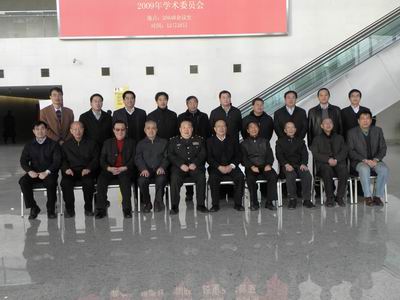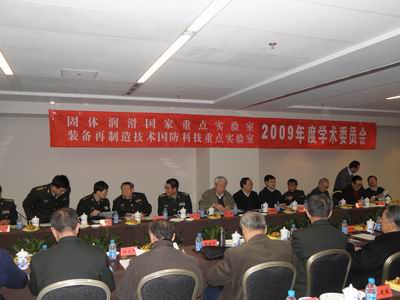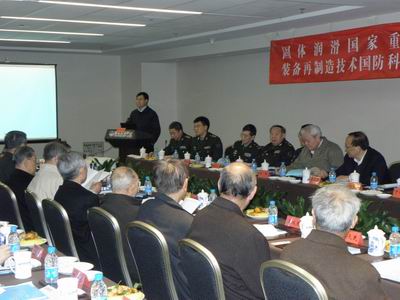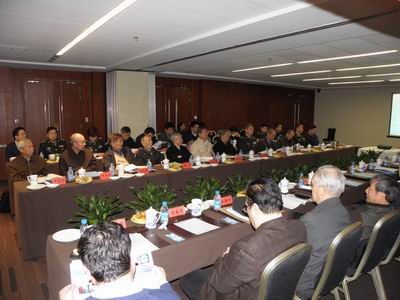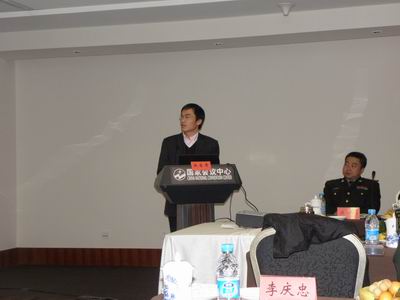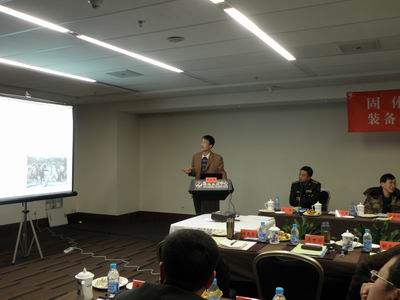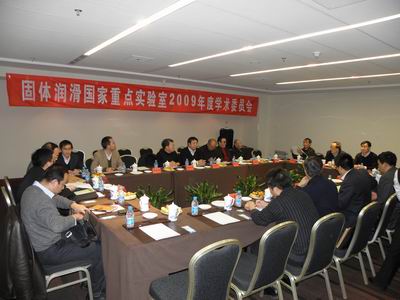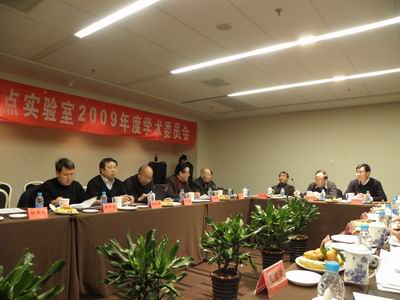The first meeting of the Fifth Academic Committee of the State Key Laboratory of Solid Lubrication (LSL), Lanzhou Institute of Chemical Physics (LICP), CAS, was held in Beijing on December 26, 2009. The first meeting of the Steering Committee of the Laboratory was held on the same day.
Prof. XUE Qunji, director of the Academic Committee, presided over the meeting and 22 members of the Academic and Steering Committee attended the meeting.
The main topics of the meeting were: the review of the 2009 work report of the Laboratory, hearing of two special research reports, discussion of the future development plan of the Laboratory and evaluation of the open funds and projects of the Laboratory in 2010.
In order to promote academic exchanges and communication, the meeting was held together with the meeting of the Academic Committee of the National Defense Key Laboratory for Remanufacturing Technology, the Academy of Armored Forces of Engineering of PLA.
Prof. LIU Weimin, director of LICP and Prof. XU Hang, president of the Academy delivered the welcoming speech on the morning of December 26. Prof. LIU made the work report of LSL mainly from the following aspects: general work of the Laboratory, major research progress, team building and talents training, academic exchanges and cooperation, key work in 2010.
Then, associate Prof. WANG Liping made a presentation entitled “Design of carbon-based composite films: amorphous and nano-crystalline structure based multi-scale coupled design and its effect” and Prof. ZHOU Feng made a presentation entitled “Design, mechanism and application of special wet, sticky and lubricating interfaces”.
Prof. XUE Qunji chaired the discussion on the future development plan of the Laboratory on the afternoon of December 26, and proposed that Prof. LI Jian be the vice director of the Academic Committee, which was unanimously agreed by the members of the Committee.
During the meeting, the Committee members fully affirmed the achievements the Laboratory hade made and also pointed out the aspects needed to be paid more attention. They also raised advice on the future cooperation and transfer of scientific achievements of the Laboratory.
